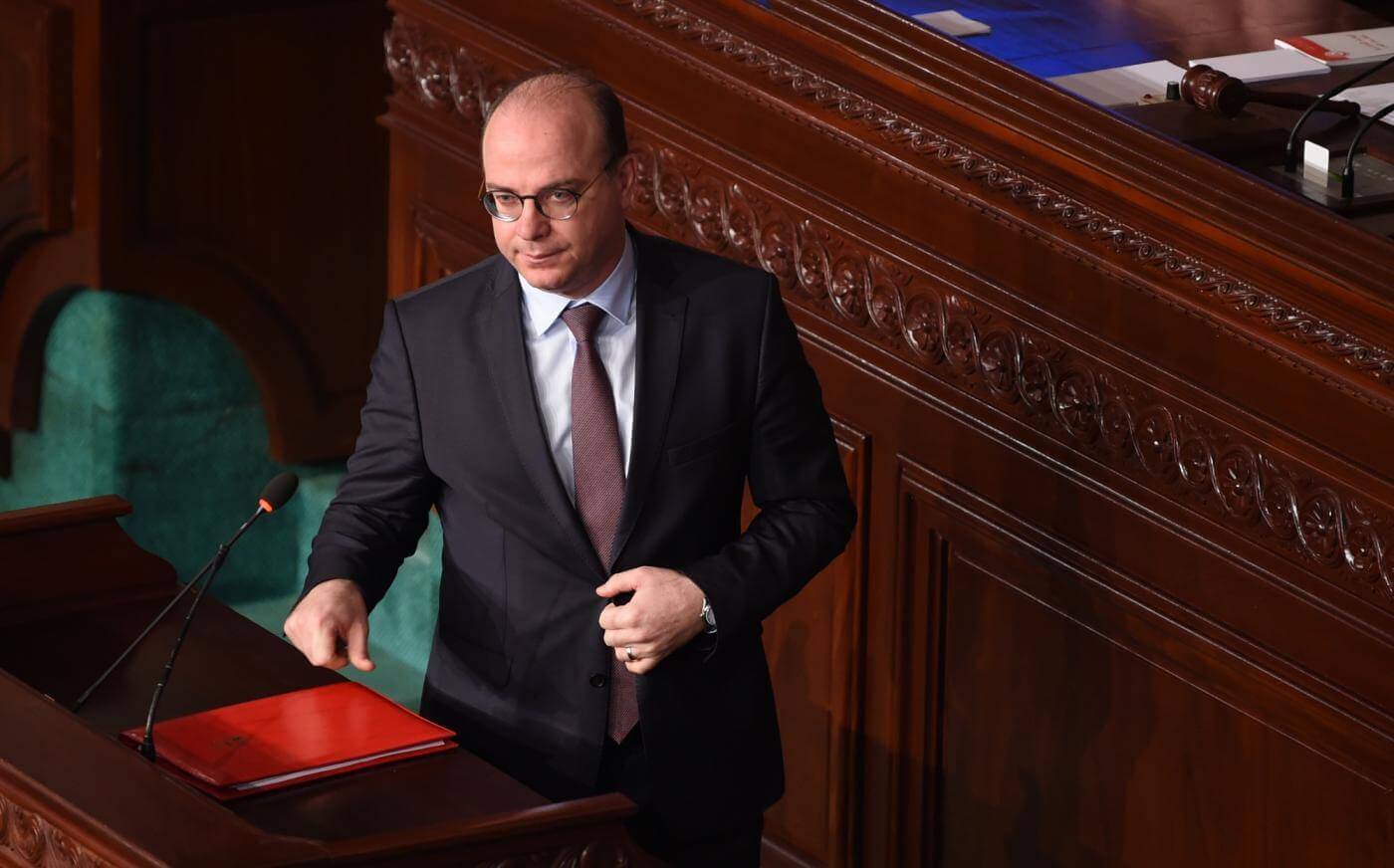On Wednesday, Tunisian Prime Minister Elyes Fakhfakh handed over his resignation papers to President Kais Saied. The sudden move came after 105 lawmakers came together to file a motion of no-confidence against his leadership.
Saied is now charged with the responsibility of choosing a new PM candidate within the next ten days, but the Tunisian Parliament is deeply fragmented in its political ideologies, with several coexisting rival parties. The failure to create another coalition government following the vacuum left behind by Fakhfakh potentially paves the way for another election.
Tunisia’s October 2019 elections had seen the Islamist “Muslim democratic” Ennahda party dominate the polls, but it fell short of a majority and led to the formation of a chamber where no single party “held more than a quarter of the seats.” Complicated efforts at forming a stable government led to the creation of a coalition headed by Saied. Fakhfakh, a member of the Democratic Forum for Labour and Liberties (Ettakatol) and a former finance minister, was appointed as the head of the government by Saied only in January 2020. The premier had a strained relationship with legislators from the Ennahda, since the party had initially nominated an independent candidate for the PM post whose failure to win parliamentary support led to Fakhfakh’s rise.
Fakhfakh is also under legal investigations over allegations of conflict of interest, as he allegedly failed to hand over the control of his private company shares after assuming office. In June, an independent parliamentarian published proof that the PM owned shares in several companies that had won deals worth $15 million from the state.
The collapse of Fakhfakh’s government less than five months from its formation is set to cause massive delays in passing crucial economic reforms and will further complicate state efforts at containing the inevitable resurgence of the coronavirus, which it has just about managed to control. Since the onset of the pandemic, Tunisia has predicted a 6.5% fall in its economy and forecasted a fiscal deficit of around 7% of its gross domestic product. As a result, it has fallen into a deep hole especially with respect to international debt repayments, wherein it has requested four countries to allow a delay on repayments. The ideological rifts between parliamentarians under the leadership of Fakhfakh made it extremely difficult to make decisions that would satiate the demands of foreign lenders and turn Tunis’ fiscal deficit to a more sustainable path.
Mekki Zaghdoudi, deputy of the secular Tahya Tounes party, also resigned from his post after his refusal to sign a parallel no-confidence motion against Ennahda leader Rachid Ghannouchi. In fact, demonstrations were held outside the Parliament house against Ghannouchi in June, led by lawyer Abir Moussi and his Free Desturian Party (PDL).
Since its 2011 Jasmine Revolution as a part of the wider Arab Spring, the West has lauded Tunis for its (comparatively) successful democratic transition. However, several Tunisian citizens are extremely frustrated with the stagnating economy, declining living standards, and decay of public services since the transition from autocratic rule. It seems as though political parties in the country are more focused on incumbency rather than governance. People living in relatively impoverished parts of the country have also engaged in protests, blocking industries in a bid to demand employment and financial aid from the state to assist them in dealing with the economic fallout of the pandemic and broken politics.
Image Source: Middle East Eye
Tunisian Prime Minister Abruptly Resigns from Post, Country at Risk of Political Crisis
July 17, 2020

